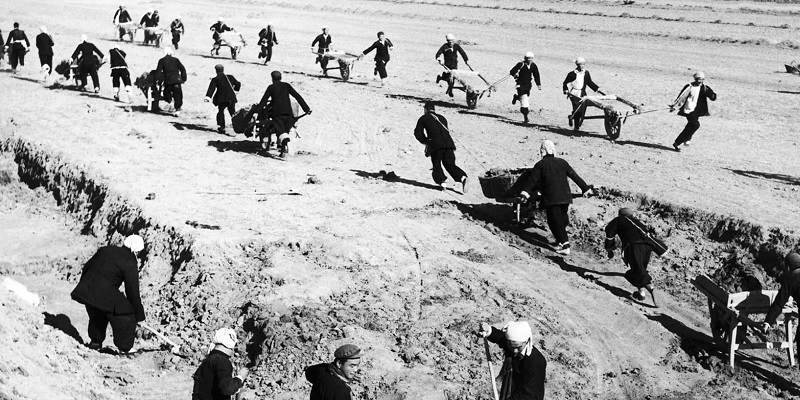At a time when India-China relations are going through a ‘rough patch’, it is important to look back at events that led to the biggest man-made disaster of the century. The Chinese government’s autocratic ways to control their people clearly demonstrate that China cannot be coherent to India.
Until the 19th century, agriculture was a major part of the Chinese economy. This was the time when 90% of its population lived in villages, and the land was considered primarily a family property. However, with the advent of revolution in 1950, individual holding of large tracts of land was banned. System of landlords was abolished and the land seized by the state was distributed amongst landless farmers and agricultural labourers which came to around 1 Bigha per person.
Initially, the Soviet Union (now Russia), as a Communist country, helped China in its first five-year plan to become economically and industrially prosperous. This aid did not last long as Sino-Soviet relations began to get strained and led to the Sino-Soviet split.
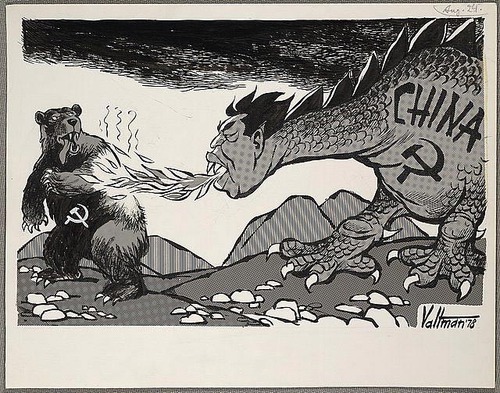
After the demise of Joseph Stalin, the then supreme leader of the Soviet Union, things changed drastically. Nikita Khrushchev, who came to power in the Soviet Union after Stalin’s death in March, 1953, was a staunch opponent of Stalin’s policy. The old Stalin policy was largely favorable to China from a various point of view. After Nikita’s ascension to power, the founding father of the People’s Republic of China and Chairman of the Communist Party of China, Mao Zedong launched The Great Leap Forward (Second Five Year Plan). Led by the Chinese Communist Party from 1958 to 1962, campaign was aimed at reconstructing the country from an agrarian economy into a communist society by formation of people’s communes.
During 1957 and 1958, Mao Zedong (then China’s supreme leader and dictator) built on a very ambitious and tumultuous idea: “Instead of the modest growth planned during the first five years (1953-57), economic growth in China can accelerate.”
Mao’s desire to be the best then gave birth to the “Great Leap Forward”.
Mao relentlessly pursued his views – his ideas and preferences shaped the important events from 1958 to 1960. Although Mao’s initial goal was to “leave Britain behind in fifteen years”, it was unrealistic to achieve this target in the modern revolution that took Britain at least 100 years. Moreover, it was unreasonable to do so at the expense of the citizens.
According to the first five-year plan of 1953-57, the Soviet Union initiated cooperative collective farming in which farmers sowed the same crop in partnership and after harvest, the government bought all the crops at once. ((In fact, the farmer cultivated his land for the government at the government’s expense and became a government farm laborer.) These Collective farms were as big as 10,000 acres with as many as 10,000 labourers working simultaneously in each of them.
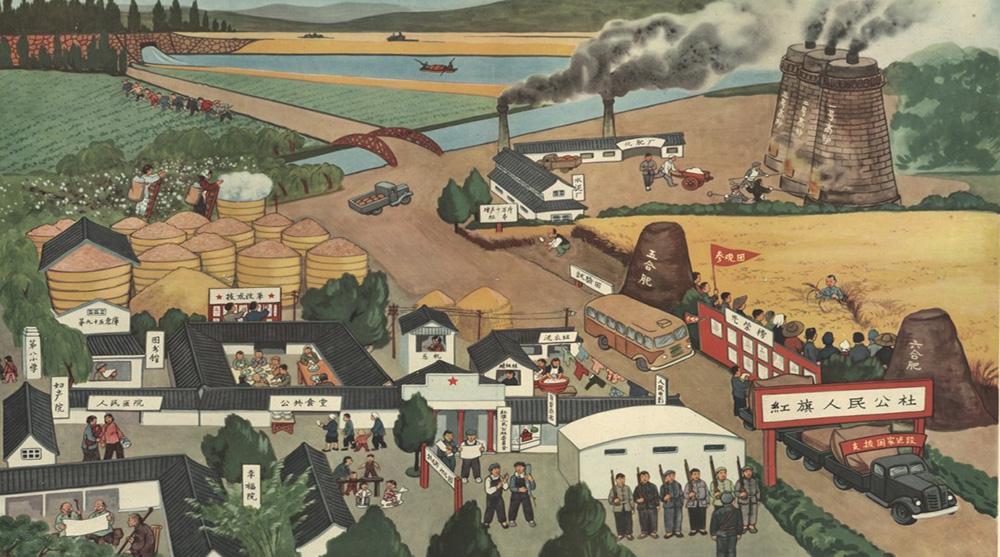
Hostels and lodging facilities were created for the people working in these collective farms to stay and dine together. Adequate arrangements were made for family members of farm laborers within the commune. For instance, nurseries and old age homes for children and the elderly were also within the commune so that efficient people could work diligently. Apart from these arrangements, young and energetic women were recruited to take care of the children and the elderly. But, in the process, these same hostesses were pushed into farming creating a shortage of farm laborers.
The Chinese government at the time was so inconsiderate that in spite of a sharp decline in farm produce during the drought, most of the crops grown on the farm were taken away. This further created a shortage of paddy in many villages. The farmers had to separate seeds from the remaining paddy for sowing the next crop and also keep some aside for eating. In order to make a name for itself in the world, China began exporting large quantities of food grains in the name of relief to countries like Albania.
The government bought the cooked grain at a nominal rate and used it for the rations of the artisans working in factories in the cities and the city dwellers.
Whatever little left was destroyed by the inspectors of collective farms. Without having ground level understanding of farming, the inspectors compelled the farmers to sow the crop at their fancy. An inspector named Luogang once got half of a standing crop reaped and ordered sowing sweet potatoes and changed it soon to groundnut. Still not happy, he got the crop removed and cleared the land for sowing the rice. Thus continuous crops started taking toll of the fertility of the soil. Excessive usage of chemical fertilizers, at times to the extent of 30 tonnes per hectare also led to further deterioration of the soil. Farmers were made to sow during winter unmindful of the fact that the crop will be destroyed in freezing cold.
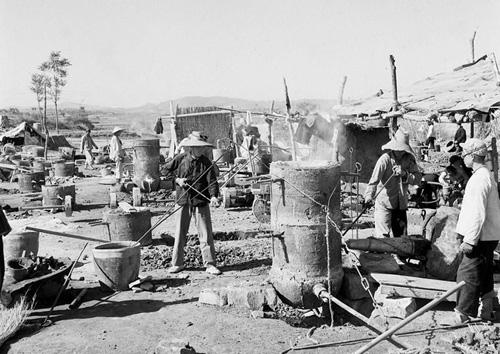
China lost the core values of its agriculture in its rivalry with the Soviet Union and in its bid to overtake the United States and Britain. Chairman Mao emphasized industrialization instead of farming. Farmers who had little or no experience in steel production were forced to produce steel. The people of the village were asked to build an iron smelting furnace in their yard and the raw material was levelled. Strong emphasis on steel production certainly led to a short-term surge in production (from 5.35 million tons in 1957 to 18.66 million tons in 1960)
However, during the next decade there was steep decline in the production as for one, the workers were unskilled and second, the steel made in the traditional furnace by apprentice workers was no match to the higher quality of steel produced in factories maned by skilled labour.
twenty per cent of the total steel production in Beijing was defective compared to 50% in Henan Province. The race to make steel led to a huge problem of waste and regional imbalances.
All these factories were degraded due to uncontrolled capital expenditure, massive waste, defective products, transport delays, rigging in labor discipline and many other problems.
Due to poor bathroom and toilet facilities in the factories, work conditions for the workers began to deteriorate. They began to urinate anywhere in the factories. Lack of hygiene in the factory canteen led to an increase in insects and rodents. Adolescents working in a coal mine in Guantanamo were not allowed to eat if they were late for work and were forced to work continuously for 10 hours. All these places were allotted small rooms of 1 to 1.5 meters to accommodate the working laborers.
One of the leaders, Wang Renzong, said that extraordinary measures had to be taken to overcome the difficult situation. Zhou Enlai, China’s first Premier, also believed that the state’s demand (industrial goals) was more important than starvation.
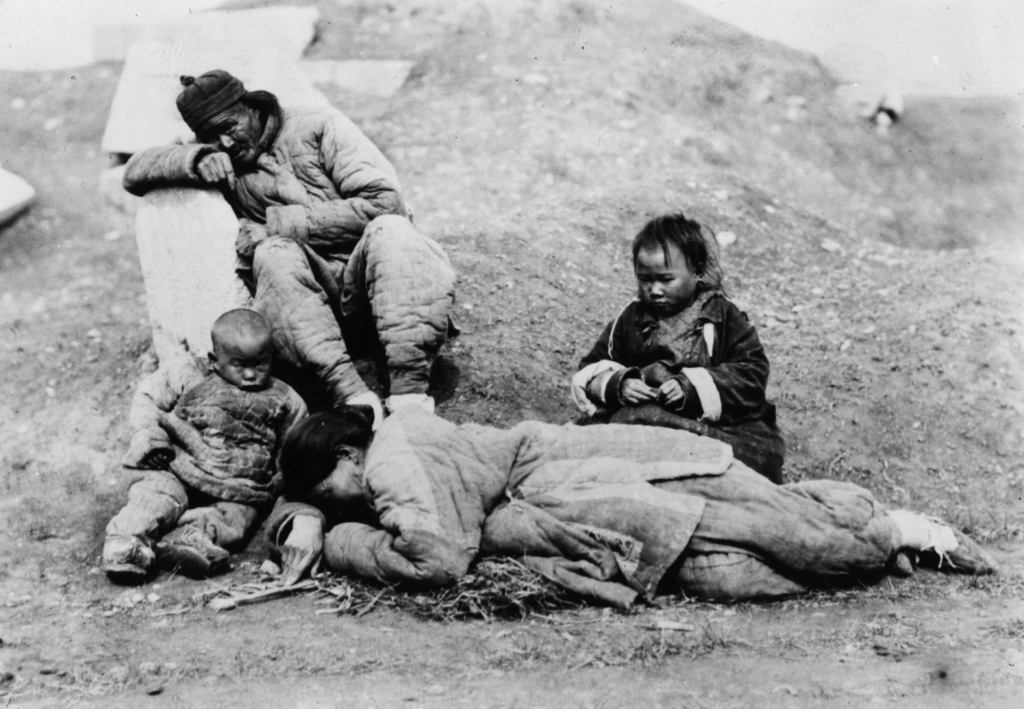
Equality is a pillar of communist ideology, but in so-called communist China, there was a stark difference in equality. The city and the villages were separated by a high wall. Rations of different quality were distributed according to the status of people. As the famine intensified, the survival of the common man became increasingly dependent on lies, charms, concealment, theft, treachery, smuggling, trickery, and manipulation.
In these circumstances, violence became the last resort for many farmers. Some of them attacked grain warehouses. Raids on trains were also common. Farmers gathered at the railway station and looted freight trains and attacked the guards. After the late 1960s, this became increasingly common, as the regime began to realize the extent of mass starvation and began to cleanse some abusive members of the party. But nothing could destabilize the regime because the government was brutally suppressing a small uprising and the captured extremists were either killed or were tortured in a labor camp (Gulag Camp).
In the winter of 1959, farmers living in the village began moving to the city in the hope of finding a good job and finding a way to fight the drought. But the situation was very different in the city. Not everyone got a job in the black market. Many were forced to steal, beg, fight and sell themselves to survive. Young women could be spotted in the middle of the city soliciting customers, and they were forced to sell their bodies to earn bread.
The situation was so bad that 2,50,000 laborers worked without pay in a town called Lanzhou, to eat just a piece of bread.
Young children living in nurseries set up on collective farms and factories were pushed into labour instead of being admitted to school as they got older. In many cases, parents would starve their children to death or leave them wandering.
In the city of Wuhan (from where Corona began), nearly 21,000 destitute children were admitted to an orphanage during the summer. There were instances where the parents exchanged their children to lighten the guilt of killing own progeny. For the people who degraded themselves to the level of cannibalism, any other living creature had little value. It was only after this famine that the Chinese started eating any moving thing with life of it’s own. Today, the world is familiar with the Chinese diet.
The Great Leap Forward is estimated to have killed an estimated 45 million people. All these deaths were not due to starvation. Out of these, about 1.5 million people were tortured up to death after arrest and one to three million people are estimated to have taken their own lives.
During this period, the death rate in the country was higher than the birth rate, which meant that more people were dying than were born.
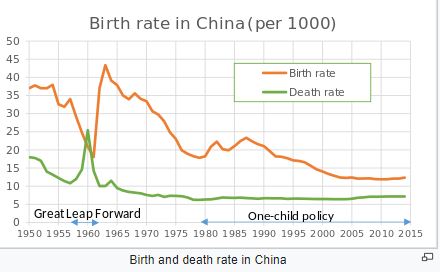
According to Professor Yang Su from the University of California, the drought of 1959-61 was the result of more of a political play than natural conditions. In 1962, Liu Shaoqi, the second President of the People’s Republic of China and the first Vice Chairman of the Communist Party of China, blamed the drought for 30% of natural disasters and 70% of man-made policies.
During this period, the country plunged into an economic crisis from which it did not emerge until 1965. This eight year period was a waste in terms of economic growth and the cost of the lost opportunity was huge, considering that this was a big shock for China as other Asian countries were experiencing their economic withdrawal. More money was printed to compensate which led to inflation. A sharp decline in lifestyle, three years of famine were factors that led to despair in the country.


